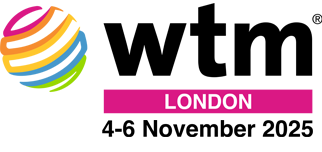Optimization of human resources in a tourism agency
Travel agencies rely heavily on their staff to deliver quality customer experiences.
However, staff efficiency can be affected by repetitive tasks, lack of training or poor time management.
In this newsletter, we will explore four key strategies for optimizing human resource management in the tourism sector.

Automation of administrative tasks
Travel agencies handle large volumes of information, from quotations and reservations to supplier management and payments.
Without proper automation, these tasks can be time-consuming and reduce equipment efficiency.
Automation allows delegating repetitive processes to management systems, reducing errors and response times. Functions such as the automatic generation of quotations, confirmation of reservations or updating of inventories can be carried out more quickly and accurately with tourism management software.
For example, Toursys can automatically manage the sending of itineraries, payment reminders and booking confirmations, allowing agents to focus on providing more personalized customer service.
Implementing technological tools not only improves productivity, but also reduces operating costs and enhances the customer experience.
Agencies that adopt automation can handle more requests without increasing their workload.
Training and continuous updating
The tourism sector is constantly evolving, with new trends, technologies and customer expectations.
To stay competitive, agencies must ensure that their team is always up-to-date and prepared for market challenges.
Training should not only focus on technical knowledge, but also on interpersonal and sales skills.
Some strategies include:
- Courses on the use of tourism management software.
- Customer service and complaint handling workshops.
- Update on industry norms and regulations.
For example, an agency that trains its team in digital tools such as chatbots or virtual assistants will be able to offer a more agile and personalized experience to its customers.
Investing in continuous training is key to improving service quality and customer satisfaction.
In addition, an empowered team feels more motivated and confident in their work, which reduces staff turnover.
Efficient time and shift management
In a tourist agency, the distribution of time is key to avoid delays and offer a quality service.
Without proper planning, employees can become overloaded or uncoordinated, affecting productivity and customer satisfaction.
Optimizing shift and time management involves:
- Use planning tools to distribute workloads evenly.
- Implement digital agendas that allow agents to organize their daily tasks.
- Define response times for each process (quotation, confirmation, reservation changes, etc.).
For example, an agency that receives many requests for quotations may assign specific shifts for certain agents to handle these tasks, while others focus on handling inquiries or closing sales.
Efficient time management not only reduces team stress, but also improves the customer experience. A well-organized team can handle more requests without compromising service quality.
Improving customer service through technology
Customer service is a fundamental pillar in any tourism agency. However, high demand and the need for immediacy can make quick and personalized attention difficult. Technology plays a key role in optimizing this process.
Today, there are multiple tools that can improve customer interaction:
- Chatbots to answer frequently asked questions 24/7.
- Self-service platforms where customers can view their reservations and make changes.
- Tourism CRMs that allow agents to personalize the experience based on the customer’s history.
For example, an agency using a CRM can record a customer’s preferences and offer them personalized packages at their next visit, improving the conversion rate.
Incorporating technology into customer service does not mean losing the human touch, but enhancing it. Smart use of these tools allows agents to spend more time on delivering memorable experiences rather than managing operational tasks.

